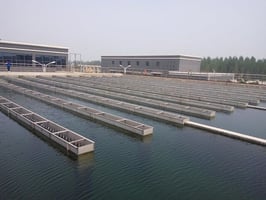The automotive sensor market is experiencing significant growth as vehicles become increasingly...
Automotive Filters Market 2024: Navigating Growth and Innovation
The automotive filters market is set to experience significant growth in 2024, driven by increasing vehicle production and rising awareness about vehicle maintenance. These filters, essential for enhancing vehicle performance and longevity, are witnessing a surge in demand due to stringent emission regulations and the growing automotive industry.

Market Overview
Automotive filters play a crucial role in maintaining the health of a vehicle’s engine and improving fuel efficiency. They are designed to remove contaminants and impurities from air, fuel, and oil, ensuring that the engine runs smoothly. The market for these filters is expanding as more vehicles hit the roads and the emphasis on vehicle maintenance intensifies.
Drivers of Growth
- Stringent Emission Regulations: Governments worldwide are implementing stricter emission standards to combat air pollution. These regulations are compelling manufacturers to equip vehicles with advanced filtration systems, boosting the demand for automotive filters.
- Increasing Vehicle Production: The rise in vehicle production, particularly in emerging economies, is a significant factor driving the market. As disposable incomes increase, more people are purchasing vehicles, leading to higher demand for automotive filters.
- Rising Awareness About Vehicle Maintenance: Consumers are becoming more aware of the importance of regular vehicle maintenance. This trend is encouraging the adoption of high-quality filters to ensure optimal vehicle performance and longevity.
Types of Automotive Filters
Automotive filters are categorized into several types, each serving a specific purpose:
- Air Filters: These filters prevent dirt, dust, and other particles from entering the engine, thereby enhancing its efficiency and lifespan.
- Oil Filters: Oil filters remove contaminants from engine oil, which can accumulate over time and cause engine damage. Regular replacement of oil filters is crucial for maintaining engine health.
- Fuel Filters: Fuel filters are designed to remove impurities from the fuel, ensuring that the engine receives clean fuel for combustion. This helps in improving fuel efficiency and reducing emissions.
- Cabin Air Filters: These filters clean the air entering the vehicle's cabin, providing a healthier environment for passengers by removing pollutants, allergens, and dust.
Regional Insights
The automotive filters market is witnessing robust growth across various regions:
- North America: The market in North America is driven by stringent emission norms and a high rate of vehicle ownership. Consumers in this region are increasingly opting for high-performance filters to comply with regulations and improve vehicle efficiency.
- Asia-Pacific: This region is expected to register the highest growth rate due to the booming automotive industry in countries like China and India. The increasing production of vehicles and rising awareness about vehicle maintenance are key factors propelling market growth.
- Europe: Europe is another significant market for automotive filters, driven by strict emission standards and a focus on sustainable vehicle technologies.
Challenges and Opportunities
While the automotive filters market is poised for growth, it faces challenges such as the increasing popularity of electric vehicles (EVs), which require fewer filters compared to traditional internal combustion engine vehicles. However, this also presents opportunities for innovation, as manufacturers can develop advanced filtration systems tailored for EVs and hybrid vehicles.
For More Info https://www.gmiresearch.com/report/automotive-filters-market/
Conclusion
The automotive filters market in 2024 is characterized by robust growth and innovation, driven by regulatory pressures, increasing vehicle production, and heightened consumer awareness about vehicle maintenance. As the industry evolves, the focus on developing advanced, high-efficiency filters will be pivotal in meeting the demands of a changing automotive landscape.



